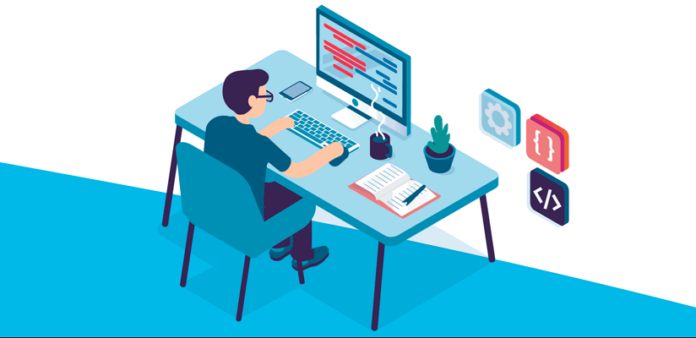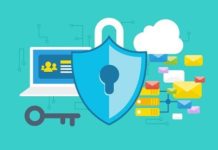Individuals, businesses, governments, and global organizations focused on solving the COVID-19 pandemic. Cybercriminals took advantage of it to attack their computer systems and networks.
This only shows that the global health crisis has no exception to cyberattacks. Attackers constantly take advantage of online trends and behavior.
That is why everyone is warned to stay proactive about possible cyberattacks.
We Are Experiencing A Lot of Hacking Attacks Since COVID-19
Regardless of the size and industry, many businesses across the globe have been impacted by the global health crisis.
Schools face challenges with online learning while determining the most effective way to address the digital divide. Retailers struggle with eCommerce, inventory challenges, and store closures. Healthcare providers have a hard time securing enough medical supplies and beds for the patients. Businesses are challenged to ensure the safety and health of their employees and customers.
The cybercriminals consider every change in routines as new opportunities to perform their attacks, especially in:
Healthcare
Cybercriminals target different hospitals with increased cases of ransomware, phishing campaigns, etc. The WHO has reported an increased number of cyberattacks. For instance, attackers send fraudulent messages and emails.
Governments
While the governments are so busy with the global health crisis, attackers perform phishing scams. Fraudulent emails or text messages are sent to trick individuals they would receive some government benefits.
Education
The pandemic leaves no choice for the teachers but to use various video collaboration solutions to conduct online classes. However, a number of breaches were reported. For instance, unwanted guests join video calls to disrupt and harass the students.
Supply Chain
The supply is also affected by cyberattacks that involve healthcare system scams. For instance, the “gray-marketers” target the personal protective equipment as they capitalize on the critical healthcare supply shortages.
What are the Different Type of Attacks that are Happening
Since the COVID-19 outbreak, near-constant cyberattacks were hitting different organizations’ news headlines. For instance, a group of cybercriminals launched a phishing attack to access the World Health Organization (WHO) critical applications and systems in March 2020. Czech Republic’s one of the largest COVID-19 testing facilities and hospitals were attacked and forced to relocate their patients to other hospitals due to canceled operations.
Below are some of the many cyber attacks that are happening, where the COVID-19 pandemic has taken advantage of:
Malicious Domains
Considerable numbers of registered domains are found on the internet. These domains contain the terms “covid-19,” “corona-virus,” and “coronavirus.” Some are legitimate websites, while others were created by cybercriminals to carry out spam or phishing campaigns.
Malware
With the widespread global communications, cybercriminals can easily mask their malicious activities. Trojans, spyware, and malware are embedded in the interactive coronavirus website and maps. Plus, spam emails are also known to trick users into clicking on links. As a result, they unknowingly downloaded malware to their mobile devices or computers.
Ransomware
Public institutions, medical centers, and hospitals are targeted by cybercriminals, where they are attacked through ransomware. While they are overwhelmed with the pandemic, they cannot afford that that their systems are locked. That is why the attackers strongly believe that they will pay the ransom.
The cybercriminals attacked their systems by sending emails that contain infected attachments or links. In return, their employee credentials were compromised.
Data Breaches
Cybercriminals accessed the European Medicines Agency’s vaccine documents as part of cyber attack campaigns. They targeted the papers associated with the BioNTech vaccine. The attackers continue to perform several data breaches, and the misconfigured services and databases are the leading causes of these record exposures.
Why Is It Important to Learn About Cybersecurity
Everyone can be a target of cyber threats and attacks. That is why it is essential to learn about cybersecurity.
Cybersecurity can encompass everything related to protecting sensitive data, protected health information (PHI), personal information, personally identifiable information (PII), industry and governmental information systems, and intellectual property from theft and damages by cybercriminals.
Gone are the days that antivirus software and simple firewalls being the only security measures. Cybersecurity risks continue to increase, especially that cybercriminals see the pandemic as an excellent opportunity to attack personal information and sensitive data.
The demand for telehealth services has skyrocketed as the pandemic rages. As a result, medical organizations are facing cyber-attacks and hacks vulnerability. Physician practices and hospitals have adjusted to deliver all the essential services virtually while devoting significant time and resources to treat COVID-19 patients and managing the skyrocketed cyberattacks. This results to security being stressed.
Additionally, people started to work from home and even receive treatments from home. This makes the entry points and vulnerability landscape increased. That is why network and system security practices implementation while addressing the COVID-19’s emerging threats is essential.
3 Cybersecurity Resources You Should Know
More and more countries are encouraging their citizens to stay or work from home. Health organizations and governments are doing their best to find solutions for the global health crisis. So, now is the best time to also focus on cybersecurity.
If you want to stay updated with the latest cybersecurity news or learn how to prevent it, consider the resources below:
It is a full Cybersecurity course for beginners. It aims to ease access to educational materials. That way, cybersecurity threats are being limited. Anyone who wants to learn everything about cybersecurity is welcome.
2. Cousera Introduction to Cybersecurity
This course allows the learners to explore cybersecurity’s fundamental building blocks. They can learn how networks handle load-balancing, DNS, routing, etc. It also covers how to build cloud infrastructure, review APIs and programming, and Linux operating system.
3. Perimeter 81 Cybersecurity Glossary
The Perimeter 81 Cybersecurity Glossary covers information and network security terms, from essential application access to reliable Zero Trust solutions. Remote desktop protocol, firewall service, cybersecurity, and site-to-site VPN are some of the interesting topics provided.
Conclusion
While everyone struggles due to the pandemic and adjusting to the new normalcy, increased frequency and scope of cyberattacks added to these struggles. Since the global health crisis began, various organizations worldwide have reported an increased number of cyberattacks. So, focus on cybersecurity is critical. We recommend hiring a Virtual CISO if you are looking for a top-tier security service without onboarding a full-time security expert.








